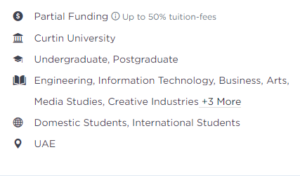The Bible tells us that our words have incredible power. You can use your tongue to bring blessings, curses, and life. Through words, you can hurt or heal. Your words can inform, educate, motivate, unite and can divide.
The same Bible, therefore, instructs us not to use foul or abusive language. Everything you say should be good, helpful and encouraging to others listening to you.
Whether or not you agree with it, our tongues can be the most challenging thing to control. Sometimes they may leave us with great regret if we are not careful. The good news is you can control the words you speak!
Remember you spend most of your time at the workplace and it is best to remain professional always to maintain a good reputation. You can’t afford to lose friends at work just because of some simple words or phrases that come out of your mouth.
In this article, I have compiled a few things you should never say at work and how to avoid them.
1. ‘That is not my job’
There are times your colleague or boss will ask you to do something that’s completely not related to what you do. It has happened to me, so I know.
Sometimes you may feel it is not your responsibility and you resist doing it.
So how do you react when you know you can’t do it? Do you pull the “This is not my job” response? If you say this, you will not portray yourself as a team player.
Instead, you can say something like “I have not done this before but I will do it for you.”
This is a bit professional as it indicates your willingness to collaborate and embrace new challenges.
2. ‘You look pregnant’
This is absolutely weird. You may have developed great friendships with your colleague to a point where you are free to ask or discuss anything with them. But the rule is, keep personal space between you.
Asking questions like “Are you pregnant?” doesn’t sound cool. It’s intrusive and disrespectful, to say the least. Just never say or mention something like this.
If your colleague is in that state, it is upon them to tell you when they are comfortable to. If you are wrong, things get really uncomfortable.
3. ‘I’m sorry’
Making mistakes is natural. There are several ways you can be in the wrong at work without even realizing it.
And when it happens, acknowledge your faults and apologize. This, however, does not mean just saying sorry openly. There’s a professional way of doing it. Say something like: “Excuse me. I know this was wrong, and it would not happen again.”
4. ‘That’s impossible’
This is one of the negative statements that can greatly affect your productivity in life.
You have probably heard successful people say ‘Everything is possible’. This is 100% true but why do you think yours is impossible?
Even if you have tried almost all the possible solutions and you think you are now exhausted, remember there are more than 1001 other options to do it better.
You can communicate through your words what you can do to improve the situation. Say something like “Let’s discuss and find out what’s possible under these situations.”
5. ‘I’m too busy’
I am not saying you are not a busy person. I know you have several things to accomplish within a short time. Sometimes you are faced with limited time that you are unable to attend to others. However, you should not use this as an excuse to avoid offering assistance to others.
Saying something like “I’m too busy” makes others feel less important. As a professional, your aim is to build and maintain positive relations with others.
Always, learn to exercise empathy when addressing other people.
In the end, you will realize that these are just but a few common phrases that come up in our everyday conversations at work but the trick is to be conscious and aware of the language you use. Be observant in meetings, presentations, and arguments and in no time you will be communicating positively with confidence.
